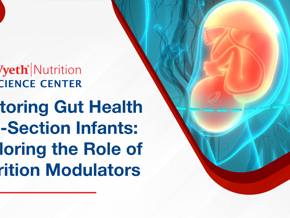
[Guideline Summary] Medical management and monitoring of inflammatory bowel disease (IBD) in Asia
Background:
- IBD has become common in Asia over the past few decades with some areas experiencing a more rapid increase than in Western countries.
- Differences in clinical manifestations and genetic risk factors are observed between the East and the West.
- In consideration of the above, AOCC and the American College of Gastroenterology collaborated in the development of recommendations on medical management and monitoring for IBD in Asia.
Method:
- A list of clinical practice recommendations was developed by an AOCC recommendation panel formed by 251 experts from 12 Asian countries and regions.
- Voting on the recommendations was obtained from clinical practitioners and graded according to level of agreement (see below).
- Among a total of 40 recommendation statements, 32 were approved and established whereas the remaining 8 were rejected as consensus was not reached.
Approved and established recommendations:
Pre-treatment evaluation
Differential diagnosis with intestinal tuberculosis
1. Intestinal tuberculosis should be excluded before IBD diagnosis, and patients should receive diagnostic anti-tuberculosis treatment when differential diagnosis is difficult.
[Strongly agree: 81.3%; Agree: 15.5%; Uncertain: 2.8%; Disagree: 0.4%]
Latent tuberculosis screening and chemoprophylaxis
2. IBD patients should be screened for tuberculosis by chest radiography and purified protein derivative (PPD) skin test or/and interferon gamma release assay (IGRA) before anti-TNF-α therapy.
[Strongly agree: 82.1%; Agree: 15.5%; Uncertain: 2.0%; Disagree: 0.4%]
3. IBD patients with latent tuberculosis infection should receive biological agents in combination with prophylactic anti-tuberculosis treatment with at least isoniazid during the first 6 months.
[Strongly agree: 64.3%; Agree: 31.3%; Uncertain: 2.8%; Disagree: 1.6%]
Screening for opportunistic infection
4. IBD patients should be screened for HBV, HCV, HIV and syphilis before corticosteroids, immunomodulators or biologics treatment.
[Strongly agree: 75.4%; Agree: 21.4%; Uncertain: 2.8%; Disagree: 0.4%]
5. All IBD patients with positive HBsAg, even with normal liver transaminases and negative HBVDNA, should receive antiviral therapy with Entecavir or Tenofovir at least 1 week before biologics application. Liver transaminases and HBV-DNA should be checked regularly.
[Strongly agree: 65.9%; Agree: 23.4%; Uncertain: 5.6%; Disagree: 5.1%]
Evaluation of perianal involvement
6. IBD patients should receive pelvic MRI or perianal ultrasound to exclude perianal disease before deciding treatment plans.
[Strongly agree: 48.0%; Agree: 37.3%; Uncertain: 13.1%; Disagree: 1.6%]
Medical management of active inflammatory bowel disease
Treatment strategy for inflammatory bowel disease
7. Step-up strategy should be recommended to induce remission in patients with mild to moderate ulcerative colitis (UC).
[Strongly agree: 76.0%; Agree: 22.0%; Uncertain: 2.0%; Disagree: 0%]
5-Aminosalicylic acid(5-ASA)/Sulfasalazine (SASP)
8. The use of 5-ASA/SASP should be recommended to induce remission in patients with mild to moderate ulcerative colitis.
[Strongly agree: 84.0%; Agree: 14.0%; Uncertain: 2.0%; Disagree: 0%]
9. The combination of oral and topical 5-ASA/SASP preparations should be recommended for proctitis, left-side colitis or pancolitis to induce remission in patients with mild to moderate ulcerative colitis.
[Strongly agree: 67.0%; Agree: 29.0%; Uncertain: 4.0%; Disagree: 0%]
Steroid
10. The use of corticosteroids should be recommendedto induce remission in patients with severe ulcerative colitis.
[Strongly agree: 76.6%; Agree: 21.8%; Uncertain: 1.6%; Disagree: 0%]
11. The maximum duration of intravenous corticosteroids use before switching to rescue therapy should be recommended as 5 days.
[Strongly agree: 35.3%; Agree: 51.2%; Uncertain: 9.9%; Disagree: 3.6%]
Immunosuppressive and biological agents
12. The use of anti-TNF-α agents should be recommended to induce remission in patients with moderate to severe Crohn’s disease (CD) and severe ulcerative colitis.
[Strongly agree: 46.0%; Agree: 46.0%; Uncertain: 7.5%; Disagree: 0.4%]
13. The use of anti-TNF-α agents monotherapy over thiopurine monotherapy should be recommended to induce remission in patients with moderate to severe CD and UC.
[Strongly agree: 48.0%; Agree: 38.5%; Uncertain: 10.3%; Disagree: 3.2%]
14. The use of anti-TNF-α agents in combination with thiopurines over anti-TNFα agents monotherapy should be recommended to induce remission in patients with moderate to severe Crohn’s disease when blood ATI increases and/or drug concentration decreases.
[Strongly agree: 61.1%; Agree: 32.9%; Uncertain: 5.2%; Disagree: 0.8%]
Treatments: Miscellaneous
15. We recommend nutrition support during the induction of remission in patients with CD.
[Strongly agree: 62.0%; Agree: 26.0%; Uncertain: 12.0%; Disagree: 0%]
16. IBD patients should routinely receive nutritional risk assessment and undertake nutritional support based on the result.
[Strongly agree: 69.4%; Agree: 24.6%; Uncertain: 6.0%; Disagree: 0%]
17. IBD patients should receive iron supplement if they have hypoferric anemia.
[Strongly agree: 69.4%; Agree: 27.0%; Uncertain: 3.6%; Disagree: 0%]
18. IBD patients should receive calcium and vitamin D3 supplements if they have osteoporosis.
[Strongly agree: 67.9%; Agree: 27.4%; Uncertain: 4.7%; Disagree: 0%]
Medical management of inflammatory bowel disease in remission
5--ASA/SASP
19. The use of 5-ASA/SASP should be recommended to maintain remission in patients with UC.
[Strongly agree: 82.0%; Agree: 15.0%; Uncertain: 15.0%; Disagree: 0%]
20. 5-ASA/SASP should be continued long-term in maintenance treatment.
[Strongly agree: 73.0%; Agree: 24.0%; Uncertain: 3.0%; Disagree: 0%]
Steroid
21. The use of corticosteroid should not be recommended for maintenance of remission.
[Strongly agree: 71.0%; Agree: 9.0%; Uncertain: 5.0%; Disagree: 15%]
Immunosuppressants
22. We recommend using thiopurines over no immunomodulator therapy to maintain remission in patients with CD.
[Strongly agree: 52.0%; Agree: 40.0%; Uncertain: 7.0%; Disagree: 1.0%]
Management of inflammatory bowel disease during the periconception period and pregnancy:
23. Female IBD patients should cease methotrexate for at least 3 months while thalidomide should be completely prohibited before conception.
[Strongly agree: 82.0%; Agree: 14.0%; Uncertain: 3.0%; Disagree: 1.0%]
24. Female IBD patients could be treated with corticosteroids or biologics only under the full consideration of the pros and cons during gestation.
[Strongly agree: 61.0%; Agree: 34.0%; Uncertain: 5.0%; Disagree: 0%]
25. Female IBD patients could use biological agents till 22–24 weeks of gestation to minimize fetal exposure.
[Strongly agree: 47.0%; Agree: 40.0%; Uncertain: 11.0%; Disagree: 2.0%]
26. Female IBD patients should take 2 mg/d folic acid supplement daily to prevent neural tube deformity if they receive SASP treatment at least 3 months before conception or during pregnancy.
[Strongly agree: 53.0%; Agree: 34.0%; Uncertain: 12.0%; Disagree: 1.0%]
Surveillance strategies for colitis-associated cancer:
27. UC patients, or CD patients with colon involvement should routinely receive endoscopy with multiple biopsies from multiple segments starting from the 8th year after diagnosis.
[Strongly agree: 52.4%; Agree: 34.9%; Uncertain: 11.5%; Disagree: 1.2%]
28. UC patients with low grade dysplasia in flat mucosae should reexamine endoscopy in 3–6 months and receive pancolectomy when necessary.
[Strongly agree: 58.7%; Agree: 32.5%; Uncertain: 6.4%; Disagree: 2.4%]
Monitoring adverse events of thiopurines and methotrexate
29. IBD patients should routinely receive Full Blood Count, liver, renal and pancreatic function tests during thiopurine or methotrexate treatment.
[Strongly agree: 70.6%; Agree: 24.6%; Uncertain: 4.8%; Disagree: 0%]
Infections in inflammatory bowel disease:
30. Clostridium difficile should be tested for in IBD patients who have recurrence or aggravation of diarrhea during treatment.
[Strongly agree: 85.3%; Agree: 12.7%; Uncertain: 2.0%; Disagree: 0%]
31. CMV should be tested for in IBD patients with colon involvement if their conditions steadily deteriorate during treatment.
[Strongly agree: 82.1%; Agree: 15.5%; Uncertain: 1.6%; Disagree: 0.8%]
32. Acute severe UC patients should be routinely tested for Clostridium difficile and CMV.
[Strongly agree: 77.0%; Agree: 18.6%; Uncertain: 3.6%; Disagree: 0.8%]
Link to publication:
https://www.ncbi.nlm.nih.gov/pmc/articles/pmid/33317546/
WYE-EM-047-MAR-21
Reference
Ran Z et al. Asian Organization for Crohn’s and Colitis and Asia Pacific Association of Gastroenterology practice recommendation for medical management and monitoring of inflammatory bowel disease in Asia. JGH. 2021;36:637-645.
Other articles that you might be interested in:
If you liked this post you may also like



